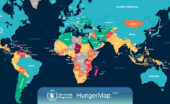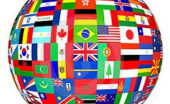Re Ian Bremmer 'Could third-party candidates upend the 2024 US election?' 3 April The current political movement in the USA…
Wednesday Night #1907
Written by Diana Thebaud Nicholson // September 26, 2018 // Wednesday Nights // Comments Off on Wednesday Night #1907
The 2018 UN General Assembly has opened.
World leaders have descended on New York to take part in the 73rd session of the United Nations General Assembly. The Iran nuclear deal, a response to the Rohingya crisis, and the future of the UN Relief and Works Agency (UNRWA) are some of the issues expected to take centre stage at this year’s gathering. On Tuesday, the first batch of leaders addressed the assembly – US President Donald Trump, Turkish President Recep Tayyip Erdogan, and France’s President Emmanuel Macron among them..
And, sadly, it was Trump’s speech that dominated the media.
Trump’s Speech at the U.N. Triggers Laughter—and Disbelief
In his stump speeches at home, Trump often laments that the United States is “the laughingstock of the world.” But, on Tuesday, he was.
Larry Haas and Jeremy Kinsman give a highly uncomplimentary breakdown of Donald Trump’s speech at the United Nations General Assembly.
According to UN Dispatch, The real drama may unfold on Wednesday, when President Trump is scheduled to chair a meeting of the United Nations Security Council.
No one really knows what Trump will do during this meeting. Will he stay on script? Will he follow protocol? Will he lambast allies as he did during the G7 and NATO Summits? The fact that Trump is so unpredictable is exceedingly worrisome to people around the United Nations.
Do we still need the United Nations?
Amidst all of the derision heaped on the Trump speech, it is good to remember that “The first thing you need to know about the UN is that there isn’t just one UN. There are at least two: One is the high diplomatic arena, where world leaders are given a space to discuss and defend their views, and make group decisions about conflict, peacekeeping, and sanctions. The other is the world’s largest development machine, which employs tens of thousands of people working to improve children’s welfare, refugee support, global health and myriad other causes.”
Meanwhile, as PM Trudeau and Chrystia Freeland are making the rounds in an opening round of the 2020 competition for a non-permanent seat on the Security Council, Mark Bonokoski of the Ottawa Sun (no, not our favorite news source) makes the point that “Canada is a piker when it comes to UN support.” The competition is Norway and Ireland. “Canada dishes out only 0.26% of its Gross Domestic Product to foreign aid while Norway is the most-generous UN donor, giving more than 1% of its GDP to developing countries;” and “Canada, after years of tap-dancing on the periphery of international actions and conflicts, is just now in Mali, unquestionably an unpredictable and dangerous African country, but Ireland has not been out of the peacekeeping game since 1958, its blue-helmeted troops currently on missions in Syria, Western Sahara, Congo-Kinshasa, Kosovo, as well as Mali. Combine the populations of Norway and Ireland, however, and it’s significantly less than the entire province of Ontario.”
It’s not often that New Brunswick steals the headlines from other provinces, let alone the Feds, but the results of Monday’s elections (Liberals, Conservatives both claim N.B. election) were not only startling, but potentially constitutionally demanding. The Liberals won 21 seats and the Conservatives took 22, while two other parties won three seats each. With 25 votes required for a majority in the N.B. legislature, the balance of power is held by the Green Party and the People’s Alliance. Anything could happen and there are reports that Elections New Brunswick is already preparing for the possibility of a snap election if the province’s political parties are unable to form a government.
New Brunswick: Over to you, Lieutenant Governor [checks notes] Jocelyne Roy-Vienneau!
Paul Wells: Brian Gallant still gets to be premier, for now. But what happens next is all about which party leader has more confidence.
It does not seem likely that next Monday’s 2018 Quebec elections will result in a similar cliffhanger, but many predict a minority government. [Quebec election: CAQ headed for power, 3rd place still a tossup — poll – But the poll also suggests it will not hold a majority and that the PQ is in a battle for third place with Québec solidaire.] Quebec Solidaire is indeed the wild card: Surge by left-wing Québec solidaire means election probably will end in minority government. Et voilà, Jean-François Lisée rejette l’idée de former une coalition avec un éventuel gouvernement minoritaire de la CAQ, mais refuse de dire s’il pourrait s’allier à François Legault pour éviter la réélection des libéraux. (Such a slippery individual!)
Finally, theses comments from our friends at Hatley Strategy Advisors (who also give an excellent round-up of each party’s proposed policies):
“Despite his recent rough patch, Legault has continued to stay on message, focusing on his economic strengths. On a day when the Mainstreet Poll had him down to second place, his team of star economic candidates stood behind him and re-affirmed their confidence in Legault’s ability to take care of Quebec’s families and grow the province’s economy. He spent the week making additional announcements, including increasing funding for Alzheimer’s research by $5 million a year and promising to widen highway 30 between highways 10 in Brossard and 20 in Boucherville.
“Couillard’s ray of light midway into the fourth week was overshadowed by Legault’s bounce back and the PLQ leader’s comments about the feasibility of $75 groceries. His promises over the week included plans to collect taxes on all digital transactions and look for more workers amongst the Indigenous population to fill labour shortages.
“In attempts to strengthen their bases, Lisée and Massé made a number of commitments throughout the week. Lisée promised to create a “Made in Quebec” label intended to encourage consumers to buy local goods and in efforts to modernize the province. Moving ahead quickly in the polls, Massé committed $210 million for measures to facilitate the integration of immigrants, including French language lessons. She promised to replace the current federal Tax-Free Savings Account program with a tax-free program focused on sustainable housing.”
For all the election junkie friends, Brookings offers this analysis:
What to expect from the 2018 midterm elections
For the most part, there are two historical truths about the midterm elections: they consistently have a lower voter turnout than the general election and the president’s party loses congressional seats (especially if the president is unpopular). As we approach the 2018 midterm elections, Democrats are feeling confident that there will be a blue wave, but the 2016 presidential election demonstrated how unpredictable elections can be. Watch Elaine Kamarck explain that who turns out to vote will ultimately be the determining factor in the 2018 midterm elections.
We were somewhat surprised by the recent wave of criticism of Governor General Julie Payette – why now, other than that the end of her first year in office is coming up ? Or are things coming to a climax behind the scenes [A sign the government is looking for an off-ramp for the governor general?]? It does seem obvious that she is not happy in – or well suited to – the role. Andrew Coyne faults the Liberals’ selection process (or lack thereof) It’s not the governor general’s fault, the Liberals are to blame – Payette’s appointment is in many ways typical of the Trudeau Liberals, in its devotion to style over substance, to ticking identity boxes over fitness for the job.


